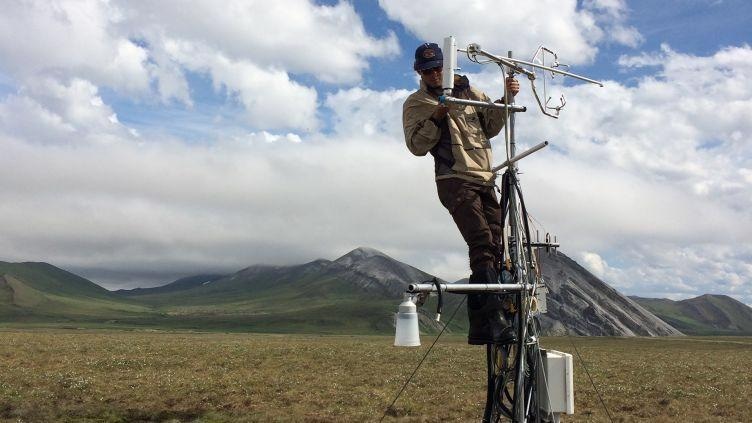According to new research from a researcher at the University of Sheffield, Arctic greening and earlier snowmelt are disturbing carbon sequestration later in the year in northern Arctic areas.

Image Credit: University of Sheffield
The new study has discovered that as a result of climate change, earlier snowmelt and an extended growing season are not causing a steady increase in carbon sequestration as first believed.
For a long time, it has been assumed that this extended phase of growth and plant yield would result in an increase in the summer carbon sequestration, the process of trapping and storing atmospheric carbon, and potentially slow down global warming.
The study’s outcomes reported in the journal Scientific Reports, however, illustrate that while there is a surge in carbon sequestration during June and July, it causes a loss in net carbon sequestration later in the year (approximately August time).
Climate change is having a major impact on the Arctic and Arctic warming, earlier snowmelt and Arctic greening are causing changes to the atmospheric carbon there. Our results show that the expected increased CO2 sequestration arising from Arctic warming and the associated increase in growing length may not materialise if tundra ecosystems are not able to continue capturing CO2 later in the season.
Dr. Donatella Zona, Study Lead Author, School of Biosciences, University of Sheffield
“The results should be considered when predicting the overall response of the Arctic carbon balance to climate change,” Dr. Donatella Zona added.
Dr. Donatella Zona is also a part of the Department of Biology at San Diego State University.
The study was performed using a wide-ranging dataset from 11 locations in Arctic tundra ecosystems across Greenland, Canada, Alaska and Russia, allowing scientists to test the reaction of a wide range of locations to the earlier snowmelt.
Journal Reference:
Zona, D., et al. (2022) Earlier snowmelt may lead to late season declines in plant productivity and carbon sequestration in Arctic tundra ecosystems. Scientific Reports. doi.org/10.1038/s41598-022-07561-1.